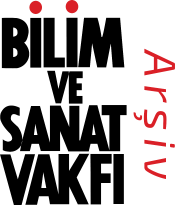| Danışman | Safran, Mustafa | |
| Yazar | Sarı, İbrahim | |
| Veri Giriş Tarihi | 2016-04-26T12:43:58Z | |
| Veri Onay Tarihi | 2016-04-26T12:43:58Z | |
| Yayın Tarihi | 2007 | |
| Künye Bilgisi | Sarı, İbrahim. Sosyal bilgiler öğretiminde sözlü tarih etkinliklerinin öğrenci başarı, beceri ve tutumlarına etkisi. danışman Mustafa Safran. Ankara: Gazi Üniversitesi Eğitim Bilimleri Enstitüsü, 2007. 364 s. | tr_TR |
| Handle Bağlantısı | http://hdl.handle.net/20.500.11834/385 | |
| Özet | Bu çalışma sözlü tarih konusu üzerine eğitim alanında Türkiye'de yapılan ilk doktora çalışmalardan birisi olması nedeniyle, öncelikle sözlü tarihin teorisi ve pratiği tanıtılacaktır. İkinci olarak, sosyal bilgiler ve tarih derslerinde sözlü tarih yöntemine dayalı tarih öğretimi ile sosyal bilgiler ve tarih derslerinin daha ilginç ve zihinlerde daha kalıcı olabileceği savunulacaktır. Bunun yanında, hem nicel hem de nitel yöntemin kullanıldığı bir araştırma planlanmış ve nicel verilerin analizinde ortalama, standart sapma ve görüşler arasındaki farklılığı belirtmek için `t' testi kullanılmış, nitel veriler ise betimsel analiz yöntemiyle (Yıldırım ve Şimsek, 2005, s.158 ) irdelenmiştir. Araştırma iki ilköğretim 7. sınıfı ve toplam 46 öğrenci üzerinde yürütülmüştür. Araştırma süresince bir gruba sözlü tarih yöntemi kullanılarak ders islenirken diğer gruba ise geleneksel yöntemle ders işlenmiştir. Sonuçta konuyla ilgili 25 soruluk çoktan seçmeli bir sınav yapılarak cevaplar ortalama, standart sapma ve "t" testi kullanılarak analiz edilmiştir. Ayrıca araştırmanın nitel yöntem kullanılan kısmında ise sözlü tarih yöntemi kullanılarak islenen derse katılan öğrencilere sözlü tarih etkinliğinin ardından konuyla ilgili yazdırılan kompozisyonlar analiz edilmiştir. Başarı testine verilen cevaplara bakıldığında deney grubu öğrencilerinin kontrol grubu öğrencilerine göre daha başarılı oldukları görülmüştür. Sözlü tarih etkinliklerinin öğrencilere kazandırdığı beceriler göz önünde tutularak değerlendirilen kompozisyonlarda ise öğrencilerin bilgiyi düzenleme, olguyu düşünceden ayırma, ilgisiz bilgi arasından ilgili bilgiyi bulma ve kendinden önceki kuşakları daha iyi anlama ve takdir etme becerilerini geliştirirken, değişim ve sürekliliği algılama becerilerini çok az düzeyde geliştirdikleri belirlenmiştir. Bu bulguların ışığında sonuç olarak, sözlü tarih yöntemiyle işlenen derslerde öğrenci başarısının arttığı ve bununla birlikte bilgiyi düzenleme, olguyu düşünceden ayırma, ilgisiz bilgi arasından ilgili bilgiyi bulma ve kendinden önceki kuşakları daha iyi anlama ve takdir etme ve değişim ve sürekliliği algılama becerilerini geliştirdikleri belirlenmiştir. | tr_TR |
| Özet | This research is one of the first studies in the field of education on oral history in Turkey; because of this fact, at the very beginning of the study, the the ory and practice of oral history will be clearlydefined. In the following part, the assertion will be proved that social sciences and history courses will be more exiciting and easy to learn when oral history methods are applied in these courses. In addition this, a research is planned in which both qualitative and quantitative methods of analysis are performed and in quantitative data analysis; mean, standart deviation and "t" test are used. Also, qualitative data is examined according to descriptive analysis. The research is performed with a sample of n= 46 7th grade students from two different elementary school classes. During the reseaech while one group of the students were thought by using oral history method, the other group of the students were thought with traditional methods. In the end, a multiple-choice exam which includes 25 questions was appilied and the scores of the exam were analyzed by performing mean, standart deviation and "t" test. Moreover, in the other part of the research in which qualitative methods were used; the compositions, which were written just after the lesson by the students who had attended the lesson in which oral history method was tried, were evaluated. When the exam result are analyzed, it is observed that the students in the experiment group are more succesful than the students in the control group. The compositions which are evaluated by considering the effect of oral history method on students show that while the applied method develops the students ability to differentiate between fact and opinion, to find the irrelevant data and relevant data and to understand the lives of the people lived in the past the past and appreciate what they did, it develops the studnts ability to comprehend change and continuity a little. x In the lights of these findings; consequently, it is found that by the help of the oral history method, the students success is increased in history courses and this method improves the students ability to order information, to relaize the difference between fact and opinion and to find the relevant data among irrelevant data and to comprehend and appreciate the people lived in the past and to comprehend change and countinuity. | tr_TR |
| Dil | tur | tr_TR |
| Erişim | info:eu-repo/semantics/embargoedAccess | tr_TR |
| Anahtar Kelimeler | İlköğretim Okulları | tr_TR |
| Anahtar Kelimeler | Etkinlik | tr_TR |
| Anahtar Kelimeler | Tarih Öğretimi | tr_TR |
| Anahtar Kelimeler | Sosyal Bilgiler Dersi | tr_TR |
| Anahtar Kelimeler | Attended | tr_TR |
| Anahtar Kelimeler | Social Studies | tr_TR |
| Anahtar Kelimeler | History Teaching | tr_TR |
| Başlık | Sosyal bilgiler öğretiminde sözlü tarih etkinliklerinin öğrenci başarı, beceri ve tutumlarına etkisi | tr_TR |
| Diğer Başlık | The effect of oral history activities in the social studies teaching to the success,ability and attitudes of the students | tr_TR |
| Yayın Türü | Doktora Tezi | tr_TR |
| Üniversite/Enstitü/Bölüm | Gazi Üniversitesi, Eğitim Bilimleri Enstitüsü | tr_TR |
| Yazar ID | TR130122 | tr_TR |
